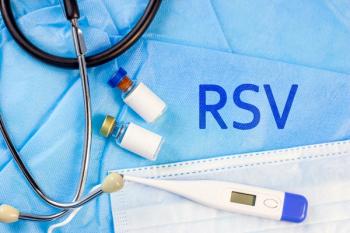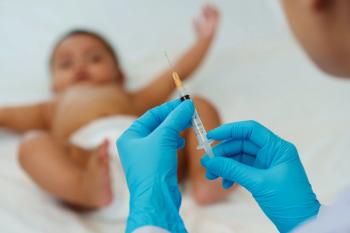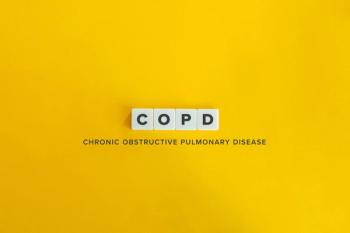
- Drug Topics April 2021
- Volume 165
- Issue 4
COVID-19 Therapy Pipeline Update
Here’s an overview of what’s in the late-stage pipeline.
The treatment landscape for patients with COVID-19 infections is constantly evolving, particularly as new information related to the disease is identified. The following is a current glance at several agents under investigation to keep you up-to-date with the latest advancements.
Bamlanivimab
Bamlanivimab is a recombinant human IgG1K monoclonal antibody (mAb) originally developed by the National Institute of Allergy and Infectious Diseases (NIAID), AbCellera, and Eli Lilly and Company from blood samples of the first patients to recover from COVID-19 in the United States.1,2 The mAb targets COVID-19 spike proteins to prevent the virus from binding to angiotensin-converting enzyme 2 (ACE2) on the surface of host cells, effectively preventing entry for replication.1 A phase 1 clinical trial began in May 2020 and ended in August 2020, enrolling patients hospitalized with COVID-19 who were not mechanically ventilated to assimilate an adverse effect (AE) profile and monitor changes in viral load with the addition of bamlanivimab.3 The drug is undergoing phase 2 and phase 3 trials.
BLAZE-1 (NCT04427501)
Phase 2, or BLAZE-1, started in June 2020 and is a randomized, double-blinded, placebo-controlled clinical trial targeting early treatment with bamlanivimab in over 3000 patients with mild to moderate symptomatic COVID-19. The study’s goal is to evaluate safety and efficacy with monotherapy and in combination with additional antibody treatment for 12 weeks.4 Three doses are being tested in the monotherapy treatment arms: 700 mg, 2800 mg, and 7000 mg.1,4 Primary outcome data were reported in September 2020 showing significant reduction in viral load and hospitalization with AEs including infusion-related reactions and anaphylaxis.1,2
BLAZE-2 (NCT04497987)
Phase 3, or BLAZE-2, is a randomized, double-blinded, placebo-controlled clinical trial and, like BLAZE-1, is in progress. The study focused on enrolled staff and patients in nursing home settings to evaluate the use of bamlanivimab for the prevention of COVID-19 in this high-risk patient population.1,5
Based on the BLAZE-1 results, the FDA granted emergency use authorization (EUA) on November 9, 2020, for treatment with 1 administration of bamlanivimab 700 mg IV infused over 1 hour in patients 12 years and older with mild to moderate COVID-19 at high risk for hospitalization within 10 days of symptom onset.1,2 On February 9, 2021, bamlanivimab received another EUA in combination with etesevimab to treat patients 12 years and older with mild to moderate COVID-19 at high risk for hospitalization; dosing specified as 700 mg of bamlanivimab and 1400 mg of etesevimab infused over 16 to 21 minutes within 10 days of symptom onset.6 This additional EUA was established based on outcomes reported through the BLAZE-1 trial on January 26, 2021, demonstrating that use of bamlanivimab with etesevimab decreased hospitalizations and deaths by 70%.6
Ivermectin
Ivermectin is an agent being considered for possible use in early COVID-19 treatment and is undergoing phase 3 clinical trials. Ivermectin is approved by the FDA as a broad-spectrum anthelmintic agent indicated for use in humans and animals. The primary mechanism of action targets the glutamate-gated chloride channels in nematodes, but has additional action that targets α/ß-mediated nuclear transport in many RNA viruses such as West Nile and influenza.7-9 There has been evidence to show that the α/ß-mediated nuclear transport is considered an essential component for viral replication/transmission in the SARS-CoV strain.8,9 Australian researchers conducted a study that tested the effects of ivermectin on cell cultures infected with COVID-19 and determined that viral production was completely blocked for 48 hours after initial exposure to the drug; however, the study used doses up to 100 times the standard oral maximum plasma concentration.7,8 The National Institutes of Health released a statement on January 14, 2021, determining that ivermectin has insufficient data for current use for treatment of COVID-19 after multiple studies have shown conflicting results. As of October 1, 2020, Temple University in Philadelphia, Pennsylvania, is conducting a phase 3, randomized, parallel arm, triple-masking clinical trial (NCT04530474) studying the use of single-dose ivermectin at 0.15 to 2 mg/kg/dose (maximum 12 mg) against placebo in patients 18 years or older with an estimated completion on June 30, 2021.9
Bucillamine
Bucillamine is an antirheumatic medication commonly used in South Korea and Japan that is being researched for use in mild to moderate COVID-19 infections.10 The University of California San Francisco discerned that thiol-based medications may provide treatment for COVID-19 infection.11 Regarding the mechanism of action of SARS-COVID, it is understood that virus entry into the cell is dependent on conformational changes that occur between the disulfide and thiol structures on the surface of the virus that take place when exposed to the ACE2 receptor.11,12 Revive Therapeutics began a phase 3 multi-center, double-blinded, randomized clinical trial (NCT04504734) for prophylactic use of bucillamine in patients with COVID-19 with mild to moderate symptoms on November 27, 2020.11-14 The study enrolled 1000 participants and assigned them to 3 separate arms: bucillamine 100 mg 3 times a day (TID), bucillamine 200 mg TID, or placebo TID for 14 days to determine whether the drug decreases occurrence of hospitalization or death.11,13 The phase 3 clinical trial is estimated to have been completed on February 1, 2020.13 Previously, bucillamine was approved to be used in the expanded access protocol (EAP) by the Institutional Review Board in hospitalized COVID-19 patients without FDA approval. Revive Therapeutics released a statement on December 23, 2020, detailing aims to expand the EAP to include use of the drug in mild-moderate patient populations because of its easily accessible oral formulation.11,15
BRII-196 and BRII-198
BRII-196 and BRII-198 are 2 human mAbs used in combination to target and bind to the COVID-19 virus to prevent the spread of infection.16 Brii Biosciences Limited has reached phase 2/3 double-blinded, randomized clinical trials with combination treatment of BRII-196 and BRII-198 mAb infusions in patients with mild to moderate COVID-19 symptoms.16,17 The trial (NCT04518410) is a part of the ACTIV-2 protocol that partners with the NIAID to coordinate and accelerate outpatient medication research for COVID-19 treatment.16,18 A total of 2000 patients 12 years or older with mild to moderate COVID-19 symptoms at high risk for hospitalization were enrolled in the ACTIV-2 trial and randomly divided into 2 treatment arms, one receiving the combination mAb infusion and the other receiving the placebo and then monitored for 12 weeks.16,17 The primary outcome is to determine the effect on symptom duration, AEs, and patient hospitalization and/or mortality within 28 days after treatment.16,17
Regdanvimab
Celltrion, based in South Korea, has proceeded with researching regdanvimab (CT-P59, Regkirona), a mAb selected for its ability to target COVID-19 and prevent the binding to the host cell, reducing viral load.19,20 Results from the randomized, double-blinded phase 2/3 clinical trials have shown promising results; as of January 13, 2021, they determined outcomes of decreased hospitalization rates, faster time to recovery, and a 54% reduction in severe COVID-19 rates that elevated to 68% in moderate symptoms of patients aged over 50 years.21 The Ministry of Food and Drug Safety in South Korea approved the use of trial medications, including regdanvimab, in hospitalized patients with severe cases of COVID-19 with no other treatment options in December; Celltrion is pursuing authorization for emergency use approval.22
About the Authors
Kendall Haney is a PharmD candidate at Duquesne University School of Pharmacy in Pittsburgh, Pennsylvania, anticipated to graduate in spring 2021.
Jonathan Ogurchak, PharmD, CSP, is the CEO and co-founder of STACK, a pharmacy information management platform, and serves as preceptor for a virtual Advanced Pharmacy Practice Experiential Rotation for specialty pharmacy, during which this article was composed.
References
- Lilly’s neutralizing antibody bamlanivimab (LY-CoV555) receives FDA emergency use authorization for the treatment of recently diagnosed COVID-19. News release. Eli Lilly and Company. November 9, 2020. Accessed February 15, 2021. https://investor.lilly.com/news-releases/news-release-details/lillys-neutralizing-antibody-bamlanivimab-ly-cov555-receives-fda
- FDA. Fact sheet for health care providers: emergency use authorization (EUA) of bamlanivimab. Updated February 9, 2021. Accessed February 15, 2021. https://www.fda.gov/media/143603/download
- A study of LY3819253 (LY-CoV555) in participants hospitalized for COVID-19. ClinicalTrials.gov. Updated October 30, 2020. Accessed February 15, 2021. https://clinicaltrials.gov/ct2/show/NCT04411628
- A study of LY3819253 (LY-CoV555) and LY3832479 (LY-CoV016) in participants with mild to moderate COVID-19 illness (BLAZE-1). ClinicalTrials.gov. Updated February 16, 2021. Accessed March 1, 2021. https://clinicaltrials.gov/ct2/show/NCT04427501
- A study of LY3819253 (LY-CoV555) and LY3832479 (LY-CoV016) in preventing SARS-CoV-2 infection and COVID-19 in nursing home residents and staff (BLAZE-2). ClinicalTrials.gov. Updated February 23, 2021. Accessed March 1, 2021. https://clinicaltrials.gov/ct2/show/NCT04497987
- Lilly’s bamlanivimab (LY-CoV555) administered with etesevimab (LY-CoV016) receives FDA emergency use authorization for COVID-19. News release. Eli Lilly and Company. February 9, 2021. Accessed February 15, 2021. https://investor.lilly.com/news-releases/news-release-details/lillys-bamlanivimab-ly-cov555-administered-etesevimab-ly-cov016
- National Institutes of Health. COVID-19 treatment guidelines: ivermectin. Updated February 11, 2021. Accessed February 15, 2021. https://www.covid19treatmentguidelines.nih.gov/antiviral-therapy/ivermectin
- Caly L, Druce JD, Catton MG, Jans DA, Wagstaff KM. The FDA-approved drug ivermectin inhibits the replication of SARS-CoV-2 in vitro. Antiviral Res. 2020;178:104787. doi:10.1016/j.antiviral.2020.104787
- Outpatient use of ivermectin in COVID-19. ClinicalTrials.gov. Updated August 28, 2020. Accessed February 15, 2021. https://clinicaltrials.gov/ct2/show/NCT04530474
- National Center for Advancing Translational Sciences. Inxight: Drugs, bucillamine. Accessed February 15, 2021. https://drugs.ncats.io/drug/R80LRA5WTF
- Revive Therapeutics provides update on FDA phase 3 clinical trial for bucillamine in COVID-19 with plans on emergency use access. News release. Revive Therapeutics. December 23, 2020. Accessed February 15, 2021. https://www.globenewswire.com/news-release/2020/12/23/2150036/0/en/Revive-Therapeutics-Provides-Update-on-FDA-Phase-3-Clinical-Trial-for-Bucillamine-in-COVID-19-with-Plans-on-Emergency-Use-Access.html
- Khanna K, Raymond W, Charbit AR, et al. Binding of SARS-CoV-2 spike protein to ACE2 is disabled by thiol-based drugs; evidence from in vitro SARS-CoV-2 infection studies. bioRxiv. 2020. doi:
10.1101/2020.12.08.415505 - Bucillamine in treatment of patients with COVID-19. ClinicalTrials.gov. Updated February 24, 2021. Accessed March 1, 2021. https://clinicaltrials.gov/ct2/show/record/NCT04504734?term=Bucillamine&draw=2&rank=2
- Craven J. COVID-19 therapeutics tracker. Regulatory Affairs Professionals Society. February 26, 2021. Accessed March 1, 2021. https://www.raps.org/news-and-articles/news-articles/2020/3/covid-19-therapeutics-tracker
- Revive Therapeutics announces IRB approval of US expanded access treatment program (compassionate use) for bucillamine in COVID-19. News release. Revive Therapeutics. September 16, 2020. Accessed February 15, 2021. https://www.globenewswire.com/news-release/2020/09/16/2094472/0/en/Revive-Therapeutics-Announces-IRB-Approval-of-US-Expanded-Access-Treatment-Program-Compassionate-Use-for-Bucillamine-in-COVID-19.html
- Statement––large clinical trial will test combination monoclonal antibody therapy for mild/moderate COVID-19. News release. National Institute of Allergy and Infectious Diseases. January 5, 2021. Accessed February 15, 2021. https://www.niaid.nih.gov/news-events/statement-large-clinical-trial-will-test-combination-monoclonal-antibody-therapy
- ACTIV-2: a study for outpatients with COVID-19. ClinicalTrials.gov. Updated January 20, 2021. Accessed February 15, 2021. https://clinicaltrials.gov/ct2/show/NCT04518410
- Accelerating COVID-19 therapeutic interventions and vaccines (ACTIV). National Institutes of Health. Accessed February 15, 2021. https://www.nih.gov/research-training/medical-research-initiatives/activ
- Celltrion announces positive interim results from phase I trial of CT-P59, an anti-COVID-19 monoclonal antibody treatment candidate. News release. Healthcare Celltrion. September 11, 2020. Accessed February 15, 2021. https://www.celltrionhealthcare.com/en-us/board/newsdetail?modify_key=364&pagenumber=1&keyword=&keyword_type=
- To evaluate the safety and efficacy of CT-P59 in patients with mild to moderate symptoms of severe acute respiratory syndrome COVID-19. ClinicalTrials.gov. Updated October 26, 2020. Accessed February 15, 2021. https://clinicaltrials.gov/ct2/show/NCT04602000
- Celltrion Group announces positive top-line efficacy and safety data from global phase II/III clinical trial of COVID-19 treatment candidate CT-P59. News release. Healthcare Celltrion. January 13, 2021. Accessed February 15, 2021. https://www.celltrionhealthcare.com/en-us/board/newsdetail?modify_key=433&pagenumber=1&keyword=&keyword_type=
- Lee J. S.Korea Celltrion’s candidate COVID-19 drug gets approval for special-case use. Reuters.December 15, 2020. Accessed February 15, 2021. https://www.reuters.com/article/health-coronavirus-southkorea-celltrion/s-korea-celltrions-candidate-covid-19-drug-gets-approval-for-special-case-use-idUSKBN28P0W4
Articles in this issue
almost 5 years ago
Reducing Pharmaceutical Waste in the Storealmost 5 years ago
Pharmacy in the Era of Telehealthalmost 5 years ago
Become That Someone for Your Patientsalmost 5 years ago
New Drug Review: Voclosporin for Lupus Nephritisalmost 5 years ago
Chemotherapy Stewardships Becoming Increasingly Vitalalmost 5 years ago
New Drug Approval Update: Therapies Pharmacies Should Knowalmost 5 years ago
Assess and Manage Your Pharmacy’s Profitabilityalmost 5 years ago
Updates in Pharmacy-Based Immunization PracticesNewsletter
Pharmacy practice is always changing. Stay ahead of the curve with the Drug Topics newsletter and get the latest drug information, industry trends, and patient care tips.























